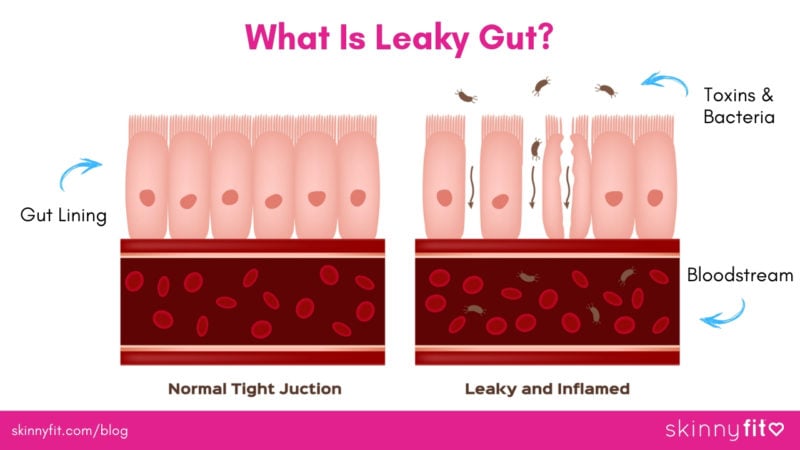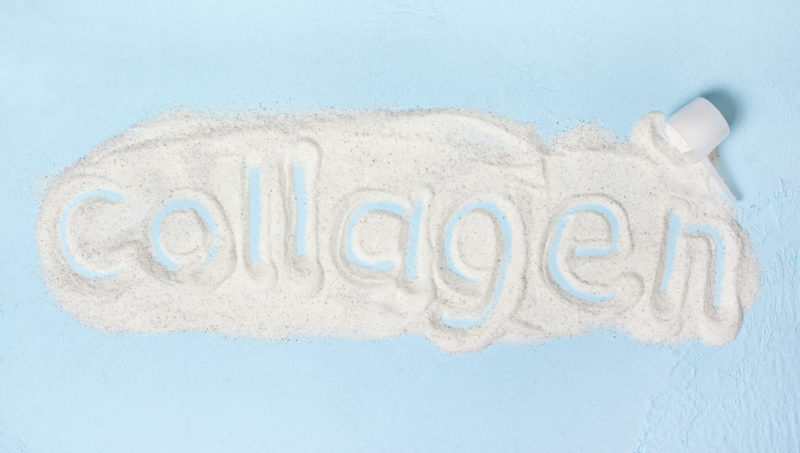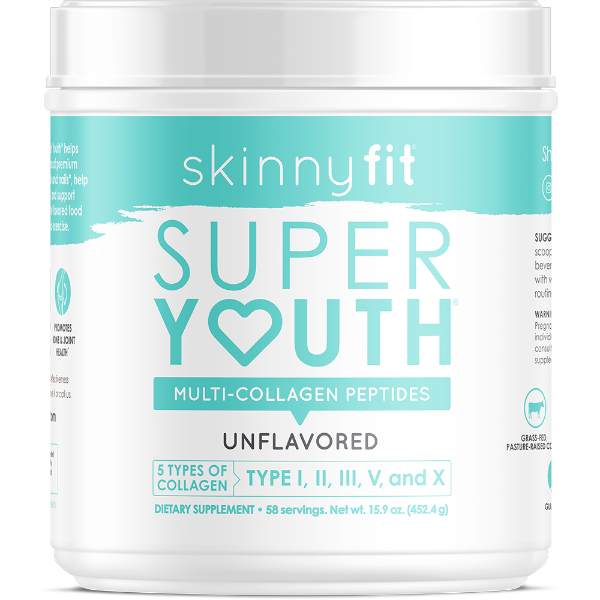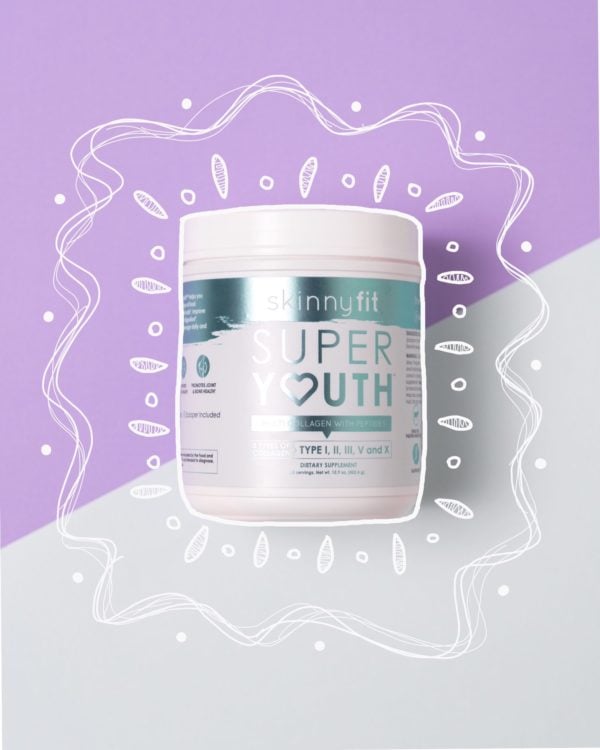- Intro
- What Is Leaky Gut?
- Symptoms
- Causes
- Collagen & Gut Health
- Treatment
- Best Collagen For Leaky Gut
- #1 Recommended Collagen
Unless you’ve been living under a rock over the last few years, you’ve most likely heard about a little something called “leaky gut” or “leaky gut syndrome”.
Leaky gut has been a hot topic among the holistic health and wellness community for the last decade, but thanks to medical blogs and social media, it’s starting to gain a massive amount of attention with the general public.
As a society, we’re becoming more inclined to seek natural remedies for common ailments, and leaky gut is no exception. In fact, experts believe that taking a collagen supplement is one of the most natural and effective solutions for treating a leaky gut—which explains why collagen and leaky gut are talked about so frequently together.
In this article, I will explain everything you need to know about using collagen for leaky gut, as well as the most common questions and concerns…
Article At A Glance
- What is leaky gut syndrome?
- What are leaky gut symptoms?
- What are the causes of leaky gut?
- Who can get leaky gut?
- How does collagen affect gut health and treat leaky gut?
- Leaky gut diet and treatment plan
- Foods to eat and foods to avoid
- What is the best collagen for leaky gut?
- How to use collagen for leaky gut
- How long does it take to heal leaky gut?


What Is Leaky Gut Syndrome?
I think we can agree that leaky gut syndrome certainly sounds like a serious and alarming medical concern—but what exactly is leaky gut, and how does it affect your digestive system and your health?
Well, leaky gut, also known as increased intestinal permeability, is a digestive condition in which the lining of the intestines becomes damaged, causing undigested food particles, toxic waste, and bacteria to essentially seep through the intestinal wall and enter the bloodstream.
You see, when you eat food, it travels to your stomach to be broken down. The broken down food then makes its way to your gut (digestive system) where the unlocked nutrients are absorbed through the intestinal wall and distributed throughout the body.
The gut lining contains a layer of cells with teeny, tiny microscopic passages, called tight junctions (TJ), that basically acts as a filter, allowing your body to let the good stuff, like vitamins, minerals, and other essential nutrients, pass through the intestinal wall.
But when I say that the passages are small—I’m talkin’ only 1-7 microns in diameter… A micron is one-millionth of a meter (1/1,000,000 meters) which is about .00004 inches. (For size comparison, a human hair is roughly 75 microns across in diameter.)

Are you following me so far? Okay, so…
When your gut lining becomes weak (through a variety of factors that I’ll explain in more detail soon) those small TJ passages can become inflamed and brittle, and can eventually expand to be 200-300 microns in diameter! Although 300 microns is still a microscopic size, the passage in the lining is now big enough to allow larger, undigested proteins from your food (along with all those toxins, pathogens, and contaminants) to sneak through the gut lining and be released into your body.
When this happens, your body identifies these particles as “foreign invaders” and triggers an autoimmune response as a defense mechanism, and as a result, your body sends an army of antibodies to attack them. What your immune system doesn’t realize, however, is that it’s actually attacking completely healthy cells!
But when the immune system feels threatened, there is no stopping it—those little antibodies are locked, loaded, and ready to react to the same types of proteins each and every time they appear, over and over again, regardless if they are “healthy” or not. This constant attack on healthy proteins can actually lead to a variety of ongoing side effects and symptoms that can dramatically affect how we feel.
What’s worse is that the symptoms that come from a leaky gut can be easily mistaken for other ailments—making it even more difficult to diagnose, and your leaky gut to go untreated.
Leaky Gut Symptoms
Symptoms of leaky gut can vary from person to person and should be treated on a case-to-case basis.
Common symptoms of leaky gut include:
- Chronic diarrhea, constipation, gas or bloating
- Headaches, brain fog, or memory loss
- Nutritional deficiencies
- Arthritis or joint pain
- Weaker immune system
- Excessive fatigue
- Skin rashes, acne, eczema, or rosacea
- Depression or anxiety
- Developing autoimmune diseases such as celiac disease, rheumatoid arthritis, lupus, or Crohn’s disease.
What’s interesting about leaky gut is the symptoms are especially tricky to diagnose because they are a direct result of whatever type of undigested protein makes its way through the gut lining and into your bloodstream.
Let me give you an example… let’s say that an undigested protein from a bowl of spaghetti you ate leaked through the lining of your gut. In this case (because gluten is the type of protein found in wheat) your immune system would attack any gluten particle as a defense. So you might discover that any time you eat something containing gluten you experience the same symptoms as someone with gluten intolerance—stomach cramps, gas, bloating, constipation, etc.
It’s important to note, however, that while all of these symptoms have long been associated with leaky gut syndrome, there is little evidence to conclude that leaky gut is the primary cause.
In other words, people who have leaky gut typically experience numerous health conditions where the symptoms and dysfunctions tend to occur simultaneously with that of leaky gut.
Causes Of Leaky Gut
As mentioned before, leaky gut is a digestive condition where the lining of the intestines becomes damaged and the tight junctions expand. So, what causes the damage in the first place? According to scientific studies and research, there is a multitude of potential causes of leaky gut.
Common causes of leaky gut include:
- Genetics—people with genetic disorders, like irritable bowel syndrome (IBS), celiac disease, and different types of autoimmune diseases, are more likely to be predisposed to developing leaky gut because they are more sensitive to certain environmental factors that can trigger the autoimmune response.
- Poor gut health—it’s no surprise that poor gut health can contribute to leaky gut syndrome. Your gut contains millions of different bacteria (some good, and some bad) and when the balance between the two is disrupted, it can affect the barrier function of the intestinal wall [1].
- Toxin accumulation—similar to how the bacteria in your gut can affect your gut lining, so does excessive toxin buildup. A few of the most harmful toxins that contribute to leaky gut syndrome include antibiotics, pesticides, toxins that come from tobacco products, and NSAIDS (Nonsteroidal anti-inflammatory drugs) such as ibuprofen [2].
- Poor diet—certain foods that contain allergens and inflammatory properties can be aggravating to your digestive system and your gut. This includes foods that contain added sugar, GMOs, refined oils and grains, synthetic dyes and additives, and more. Ensuring you have a clean eating grocery list when you hit the supermarket is a great way to avoid potentially harmful foods that cause leaky gut.
- Nutrient deficiencies—some nutrient deficiencies can cause increased intestinal permeability as they play a particularly important role when it comes to your body’s collagen production.
Who Can Get Leaky Gut?
Anyone can have a leaky gut without even knowing it. But according to research conducted by the Department of Biomedical Sciences and Pathobiology at Virginia Tech, those with autoimmune diseases, like celiac disease, Crohn’s disease, and IBD, for example, are especially susceptible because they are more sensitive to changes in the digestive system.
How Does Collagen Affect Gut Health and Treat Leaky Gut?
Collagen is the most abundant protein in your body and can be found just about everywhere—in your skin, hair, bones, muscles, and even the lining of your intestines. In fact, collagen is essential for keeping the lining of your gut strong and healthy!
Think of collagen as a glue along your gut lining—it helps the tight junctions maintain their shape and durability. When your body’s collagen storage is low, the lining of your gut can become weak and leaky gut can occur.
So, needless to say, collagen is not only crucial for preventing leaky gut, but for repairing it as well.

How does collagen help treat leaky gut?
Collagen does wonders for your body in multiple ways and even helps to treat leaky gut syndrome. The unique structural components of collagen and the combination of amino acids help to reduce gut inflammation, heal stomach ulcers, aid in digestion, and regulate stomach acid and secretion.
A 2007 research study on wound healing and intestinal diseases shows that collagen synthesis is an essential biological process in repairing the intestinal lining after it’s been damaged which has a direct correlation to restoring a leaky gut.
This is how collagen can help treat leaky gut:
- Collagen can repair the intestinal lining of the stomach
- Collagen reduces gut inflammation
- Collagen heals stomach ulcers
- Collagen aids in digestion
- Collagen regulates stomach acid and secretion
Collagen and gut health
We know that collagen synthesis is a fundamental element to repairing a leaky gut. We also know that people with nutritional deficiencies are more susceptible to getting a leaky gut. But did you know that the two are actually related?
Believe it or not, leaky gut is actually a mild form of scurvy in the gastrointestinal tract.
Scurvy is a disease caused by chronically low levels of vitamin C and when left untreated, it can turn into a vitamin C deficiency.
Vitamin C is a cofactor to collagen production—meaning it’s vital for collagen synthesis and formation of collagen throughout your body. Without it, your collagen production shuts down and your health (and your gut) can pay the price. This is why taking a collagen supplement is crucial for anyone with nutrient deficiencies, especially if they have a leaky gut.
Leaky Gut Diet and Treatment Plan
Taking a daily collagen supplement to heal or prevent leaky gut is crucial, but having a gut-friendly diet can help minimize your symptoms and accelerate the healing process. The best diet for leaky gut should be rich in pre- and probiotic fiber, vitamin C, magnesium, and enzymes.
Our modern diets often lack prebiotic fiber. Prebiotics are a type of plant fiber that feeds the probiotics (the good type of gut bacteria) that already live inside the large intestine. The more food, or prebiotics, that the probiotics have to eat, the more efficiently the live bacteria function, and the healthier your gut will become. Prebiotics also help your microbiome protect the gut lining to control what your body absorbs.
In order to ensure that your body can properly process prebiotic fiber, it’s important to include a probiotic supplement, like SkinnyFit Belly Balance into your daily routine.
SkinnyFit Belly Balance is an all-natural blend of kombucha and live probiotics that promote healthy digestion and regulate your digestive system. It also contains healthy digestive enzymes that relieve inflammation, boosts immunity, and calms bloating related to leaky gut. These crucial nutrients work together to restore a healthy balance of good bacteria to increase nutrient absorption.
Foods to eat to heal leaky gut
The following foods are best for improving digestive health:
- Cruciferous vegetables—broccoli, brussels sprouts, cabbage, kale, spinach, and swiss chard.
- Vegetables that are rich in prebiotic fiber—artichokes, tiger nuts, Belgian endive, chicory, and parsnips.
- Root vegetables—potatoes, sweet potatoes, yams, carrots, squash, ginger, and turnips.
- Fermented vegetables—kimchi, sauerkraut, tempeh and miso.
- Fruits rich in vitamin C—tomatoes, citrus fruits (lemons, limes, oranges, mandarins, etc.), kiwis, papayas, bell peppers, and strawberries blueberries, grapes, coconut, raspberries, pineapple, and passionfruit.
- Nuts and seeds—raw nuts including peanuts, almonds, along with nut-based products like nut butter and nut milk, chia seed, flax seed, sunflower seed, and most other seeds rich in monounsaturated fats.
- Gluten-free grains—buckwheat, amaranth, and gluten-free oats.
- Healthy fats—avocado/avocado oil, coconut oil, extra virgin olive oil.
- Fish—salmon, tuna, herring, and other fish rich in omega-3 fatty acids.
- Meats and eggs—lean cuts of chicken, beef, lamb, turkey, and eggs.
- Herbs and spices—all herbs and spices.
- Cultured dairy products—yogurt, kefir, Greek yogurt, and traditional buttermilk.
- Beverages—bone broth, teas, coconut milk, nut milk, water, and kombucha.
- Foods high in bioflavonoids—sprouted buckwheat, quercetin, parsley, onions, green tea, citrus.

Foods to avoid to heal leaky gut
These are the foods to avoid to heal leaky gut:
- Wheat-based products—bread, pasta, cereals, wheat flour, couscous, etc.
- Grains that contain gluten—barley, rye, bulgur, seitan, triticale, and oats.
- Processed meats—cold cuts, deli meats, bacon, hot dogs, etc.
- Junk food and sweets—fast foods, potato chips, sugary cereals, candy bars, cakes, cookies, etc.
- Dairy—milk, cheese, and ice cream.
- Refined oils—canola, sunflower, soybean, and safflower oils.
- Artificial sweeteners—aspartame, sucralose, etc.
- Beverages—alcohol, carbonated beverages, sports drinks, and other sugary drinks.
What Is The Best Collagen For Leaky Gut?
Taking collagen for leaky gut is one of the easiest and most convenient ways to heal your gut issues. Collagen supplements come in a few different forms so it’s important to learn which type of collagen is best for leaky gut, and for you.
When it comes to collagen, gut health, and digestion, the best type of collagen is a hydrolyzed collagen peptide blend, like SkinnyFit Super Youth. Super Youth contains five different types of collagen from three unique sources and contains all the amino acids necessary to repair a leaky gut.
Hydrolyzed collagen is the easiest for your body to break down and digest because the amino acid chains have already been broken down into smaller pieces, allowing them to be easily absorbed into the intestinal wall and into the bloodstream. Other types of collagen (like gelatin, pure collagen, and bone broth) don’t break down as easily as hydrolyzed collagen so they won’t be as effective for treating leaky gut.
The five types of collagen work together to repair the intestinal lining of your stomach, improve digestion, reduce inflammation, and regulate bowel movements, stomach acid, and secretion.
How to use collagen for leaky gut
High-Quality collagen should be taken one to two times daily in order to replenish and restore your body of its natural collagen storage. SkinnyFit Super Youth is odorless and flavorless, so you can mix it with your favorite beverage or food to make getting your daily dose of collagen easier than ever.
You can mix collagen with essentially anything, but we recommend mixing it with your favorite go-to foods and drinks that are packed with the flavors you love —like your morning coffee, smoothies, desserts, or even in salad dressings!
How long does it take for collagen to heal leaky gut?
As mentioned before, leaky gut varies from person to person and should be treated on a case-to-case basis. However, according to Dr. William Cole, D.C., of MindBodyGreen, “It can take anywhere from two to three weeks for a normal, healthy gut to generate a new lining and up to 12 weeks for those with an autoimmune condition or food sensitivity.”
Mentioned In This Post
SkinnyFit Unflavored Collagen
Look and feel younger with Super Youth Multi-Collagen Peptides! This versatile collagen powder includes 5 collagen types from 4 natural sources to restore youthfulness from the inside out.

The Bottom Line
Although leaky gut can be difficult to diagnose and the symptoms can vary, you can easily heal (and prevent) leaky gut by taking a good-quality collagen supplement, like SkinnyFit Super Youth, on a daily basis.

Additional Resources
